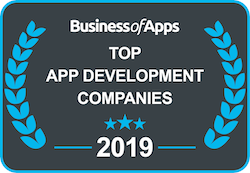"The mHealth app market was valued at around $28,320 Billion US Dollars in 2018, and projected to reach $102,350 Billion US Dollars in 2023." - Liquid State

After some careful brainstorming, the Red C team have come up with three ideas for a healthcare app that could dramatically enhance services and offer optimal patient care and accessibility.
‘Anytime, Anywhere Healthcare’
1. Video Consultations
Video Consultations, i.e. video calls between doctors and patients will enable direct and instantaneous communication between doctor and patient, achieving greater procedural efficiency and diagnosis. Video consultations will improve accessibility for patients who live in rural areas, frail/elderly patients, or patients who are immobile and unable to travel due to their health condition; optimising doctor-patient connectivity. Advanced applications could enable doctors to record the vital signs of their patients, and maintain logs about patient visits, consultations, and prescriptions; changing the way we access healthcare.

Babylon Health has capitalised on advancements in technology and the mobile revolution by developing a 24/7 healthcare service which facilitates online doctor consultations via a mobile app. Babylon aims to break down the barriers of accessibility by ‘putting accessible and affordable health service in the hands of everyone on earth’. Through the Babylon Health app, patients are able to get in touch with a doctor within minutes and seek medical advice. Amongst video consultations, Babylon offers a symptoms/health checker and chat forum facilitating messaging between doctor and patient.
“I have a chronic illness and having a GP at hand has been a revelation for me.” – Babylon Health App User
Red C partnered with Psyma to develop one of the first mental health mobile apps in the UK, offering psychological therapy through live video consultations, ensuring that help and advice are ‘private, convenient [and] accessible.’ Receiving a positive public response, Psyma was awarded best ‘Health and Fitness App of the Year’ at the UK App Awards when it was released in 2017.

“Could this psychology app change your life? […] It’s particularly suitable for mums without access to childcare who might be suffering from postnatal depression, those living in remote areas […] or those with mental health issues who simply cannot face leaving the house.” – RelaxYaSelfToHealth Blog
‘Safer, Smarter Prescriptions’
2. E-prescribing
E-prescribing could help guarantee that patients receive premium quality healthcare by providing easy access to their personal prescriptions via a mobile app. Ideally, patients would be able to access all their medical history as well as prescriptions, along with an extensive list of drug information to help prevent side effects and improve the quality of diagnosis. If used in tandem with a ‘video consultation’ functionality the issues raised in consultations could be tracked and followed through in the app.

‘iPrescribe’; an android application, has facilitated ‘safer’ and ‘smarter’ e-prescribing by providing a drug ‘formulary, copay and benefits information’ that doctors can upload into the app for patients before they prescribe drugs, as well as providing clinical alerts, and promising ‘the most robust medical history available in the industry.’ A user review of the app specified a desire to see a more ‘detailed prescription instruction template’. Thus, a crucial piece of advice for those seeking to create the next big e-prescribing app; ensure that instruction and prescription templates are detailed, easy to understand and user friendly, to optimise the quality of prescriptions given by doctors to patients in the app.
‘Instantaneous, Personalised Healthcare’
3. Recommendations & Reminders
A mobile app that facilitates recommendations and reminders could dramatically improve the patient-doctor relationship. Tips, recommendations and reminders can work in tandem with other features such as video consultations or e-prescribing by reminding patients when they must pick up their prescription, take their medication/drugs and attend a consultation in person or virtually.
Wellbeing or fitness apps could benefit from a recommendation functionality by suggesting dietary plans, offering nutritional information about food/ingredients, as well as offering tips and recommendations for physical activity and training plans.
An advanced application could offer nutritional/training tips that are bespoke to the patient based on their own individual health issues or fitness goals. Ideally, recommendations and tips would update automatically based on the user’s medical history stored as data in the app. For example, an app such as this one could recommend a dietary plan containing foods that are rich in Iron and Vitamin C for a patient who suffers from Anemia. Or, for a patient who is recovering from a knee injury, a training plan could be put in place recommending exercises that strengthen the knees specifically, avoiding any high-intensity interval training if the injury is recent.

Capitalising on its longstanding popularity, Nike has developed an iOS and Android application offering over 100 workouts spanning from endurance, strength and mobility activities. ‘Nike Training Club’ is compatible with AirPlay, AppleTV and the Apple Watch, optimising accessibility for users.
As Generation Z demand even more streamlined, efficient and speedy digital processes, consumer brands are forced to digitise, modernise and update their services. However, the healthcare industry is not isolated from such evolution as mhealth (mobile health apps) and fitness apps are disrupting the market. Mobile apps are revolutionising the healthcare industry allowing for far more accessible and secure care for patients, as well as offering more accurate diagnosis and procedural efficiency.
Email for enquiry: georgia@red-c.co.uk



